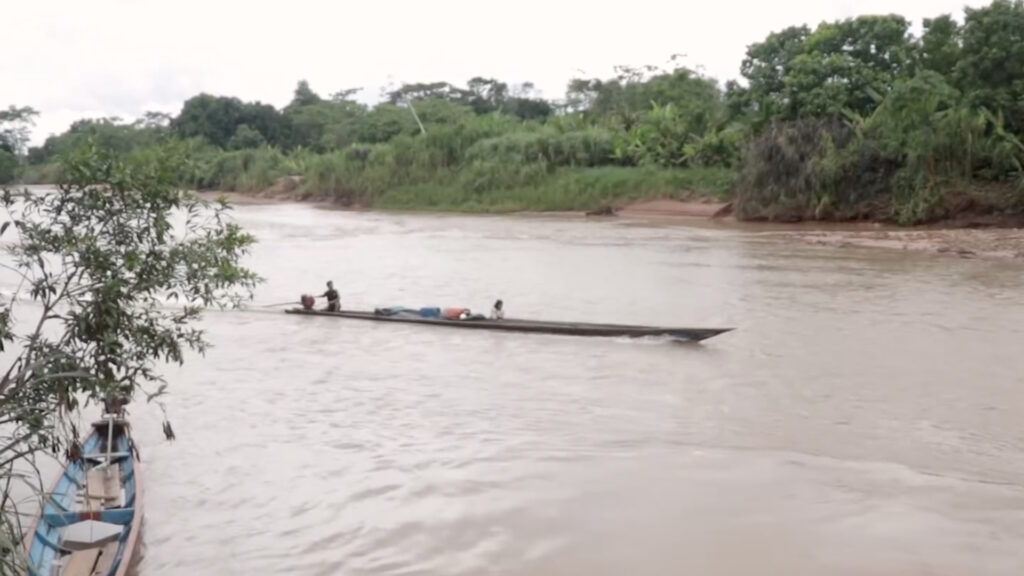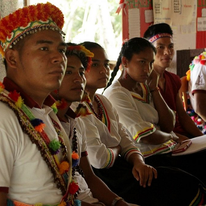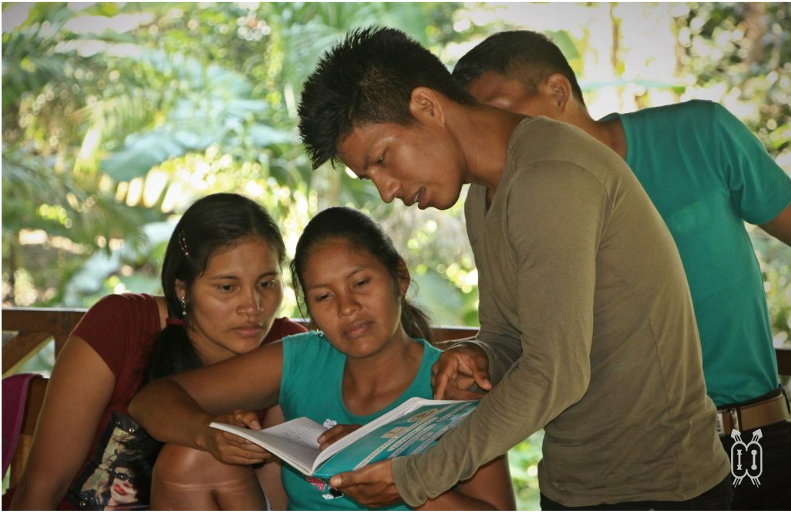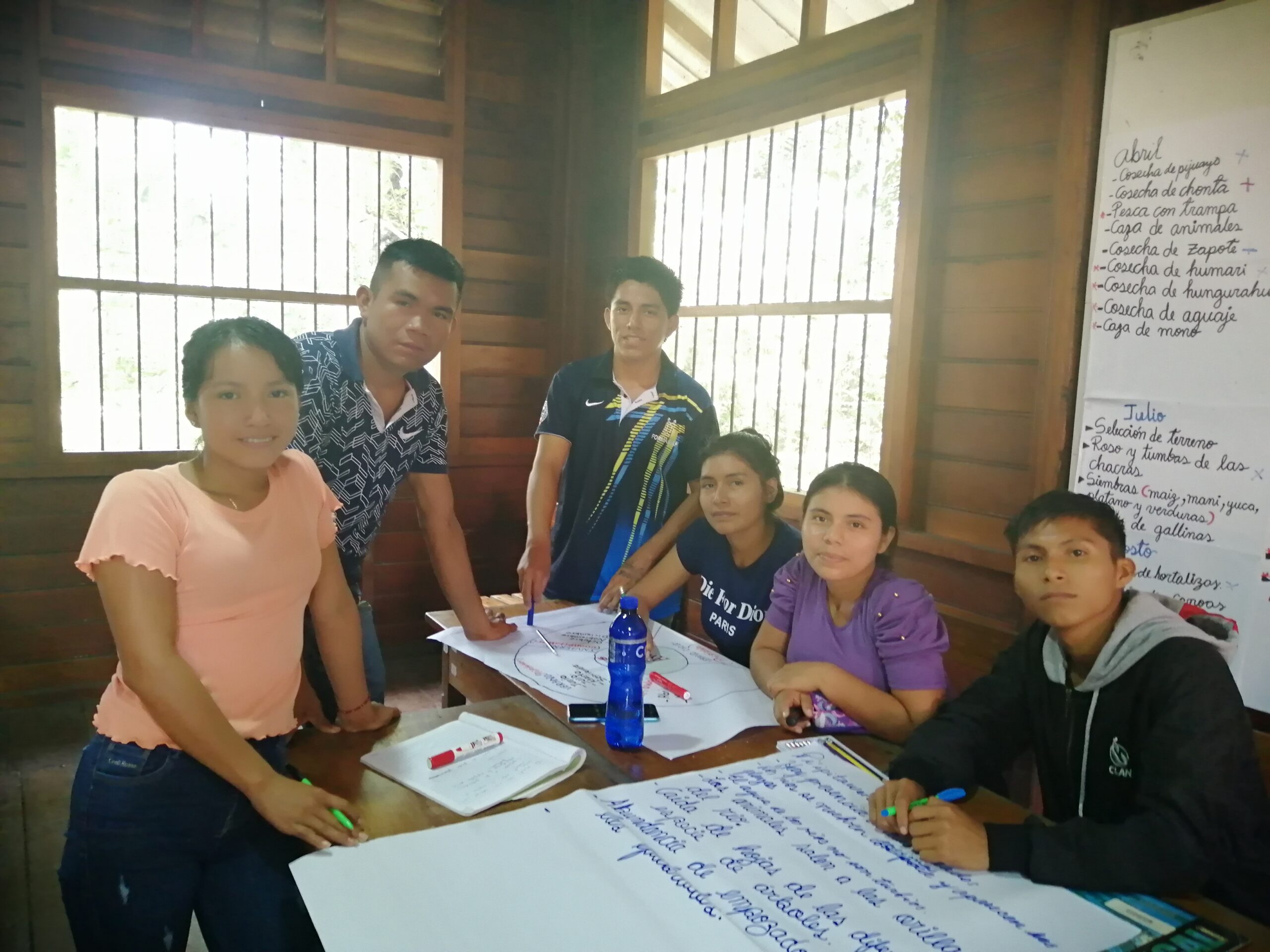Time for an overhaul – project in the Peruvian Amazon
This article was written with input from CICED’s project coordinator Susanne Pérez
First, let’s recall what the project is really about:
The project aims to develop intercultural education on social and environmental issues in the Peruvian Amazon for the Kichwa, Kukama and Shawi indigenous peoples.
The indigenous Amazonian peoples of Peru are marginalized and their rights violated. First by the colonization and occupation of the territory, and now by the overexploitation of natural resources, oil pollution, regressive social and educational policies, and the spread of urban and consumerist cultural models that endanger the cultures, identities and ways of life of indigenous peoples.
Although progress has been made in recognizing the rights of indigenous peoples, there are still major inequalities between urban and rural populations. The project aims to strengthen indigenous participation and organization through improved education, strengthening the bilingual education system for indigenous teachers and increasing the focus on environmental initiatives with cultural and social relevance in local communities.
The project unfolds through the work with three objectives:
- Improve the relevance of education in local communities by increasing the participation of community actors and indigenous organizations in the design of education management tools adapted to their socio-environmental reality and by promoting the adoption of these tools by bilingual teachers and education authorities.
- Strengthening the training of indigenous teachers with an approach that includes not only pedagogical, cultural and linguistic aspects, but also instruments for critical intercultural analysis, the defense of collective rights and the social and environmental commitment of bilingual teachers.
- Increase the socio-environmental action of educational centers in indigenous communities by creating a network for exchange and capacity building for teachers and centers to promote environmental initiatives with cultural and social relevance.
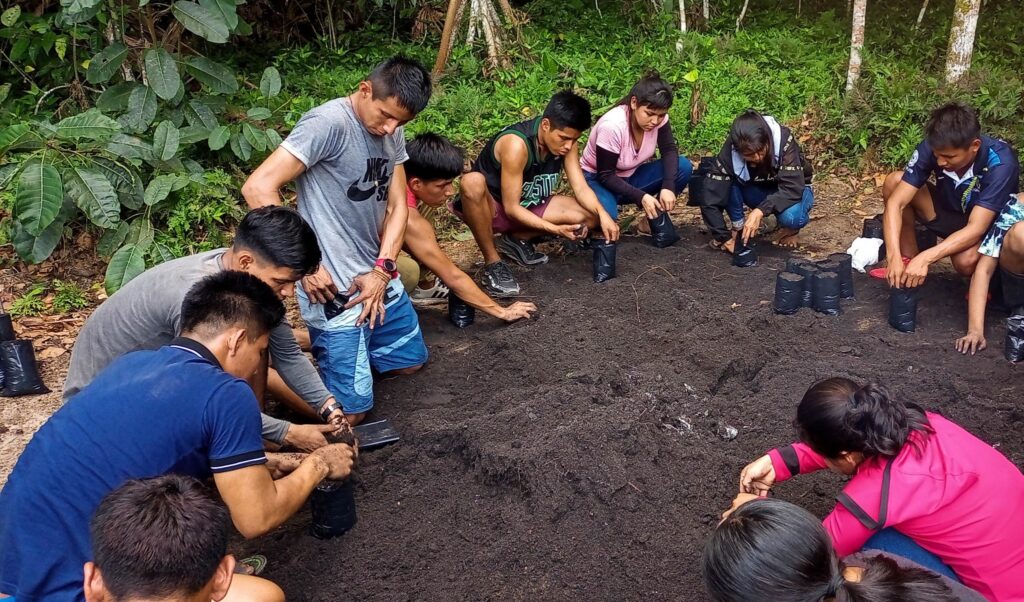
Status of implementation
Objective 1 focuses on the participatory process aimed at diversifying the primary school curricula in four provinces of Loreto and incorporating them into the local education plans.
However, engaging local authorities has proven difficult, resulting in significant delays. Although working groups have been established, activities have only started in one province and verification tools have not yet been developed. The different curricula and local education plans are crucial in guiding teachers to implement relevant learning activities that emphasize community-based forestry and social and environmental goals.
Goal 2 involves creating a teacher training environment that can equip primary school teachers with practical experience and theoretical knowledge of agroforestry and socio-environmental activities, along with advocacy strategies.
Progress has been made in implementing these activities in the teacher training program at the Zungarococha campus during 2023. However, there are delays in systematizing the experiences into curriculum versions and methodological guides for teachers.
Objective 3 aims to implement community-based socio-environmental education projects in 14 primary schools in the participating communities.
Progress has been generally positive with monitoring visits, workshops and teacher training. However, adjustments were made that reduced the number of prioritized schools and teachers due to resource constraints and a shift in focus towards specific ethnolinguistic groups.
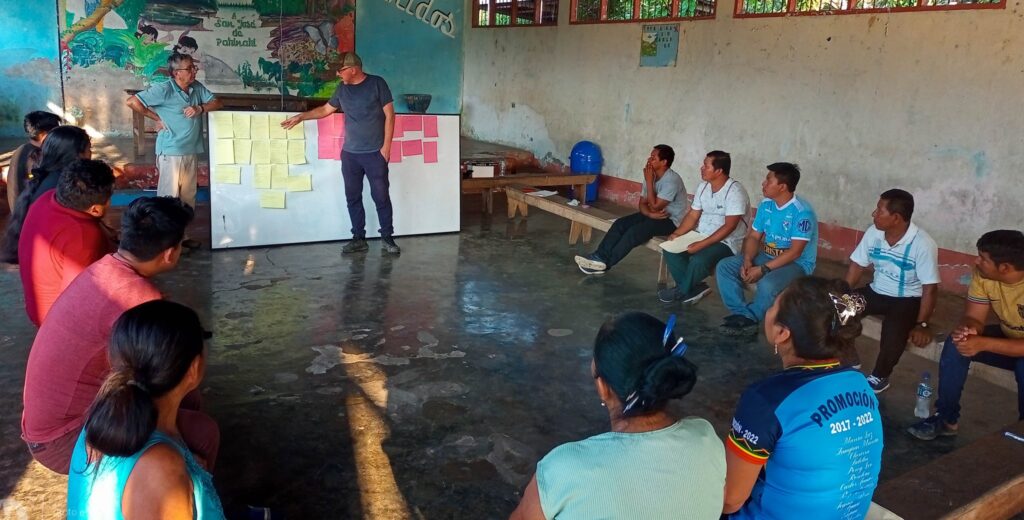
Challenges, learning and adjusting
The project is generally progressing well, but faces delays and adjustments due to three main factors: an unstable educational policy context, instability in the local government (UGEL) and lack of human resources in teacher training, Formabiap, CICED’s partner.
- Unstable context: Initially, the Ministry of Education (MoE) tried to reduce the number of recognized intercultural bilingual schools (IBE). This posed a threat to the project’s target regions and schools. But advocacy from organizations like Formabiap prevented the loss of IBE status, even though it caused delays in the beginning of the project.
- Unstable governments: It is crucial to involve local governments early on in the curriculum development process. However, constant turnover and a lack of interest in the project’s environmental and indigenous agenda has hindered collaboration. The project team is considering continuing with participatory workshops even without the local authorities in place to reduce delays.
- Lack of human resources: Formabiap faces a shortage of qualified people, which affects the implementation of the project. Some teachers lacked relevant knowledge and skills, while key people in the project had too much responsibility within Formabiap. Despite the challenges, the project has integrated experts in sustainable forestry and is restructuring to ensure that activities can be carried out efficiently.
By January 2024, the project team was reorganizing activities and responsibilities to make it easier to move forward. They are considering accelerating the curriculum development process while applying for a no-cost extension to ensure proper implementation.
We have taken into account CISU’s advice to strengthen advocacy in the project. On the one hand, a focus on advocacy has been added to the content areas of teacher training courses. On the other hand, Formabiap has tried to establish a direct connection with educational authorities at different levels, with the aim of ensuring that the developed experiences and curricula can become part of local and regional educational policies.
While this has proven difficult at the local level (UGEL), collaboration with regional education authorities is more successful.
Most indicators to measure project progress are based on written products, such as curricula and guidelines. However, indicators of student teacher or community learning processes could be needed to better show the invisible changes in perceptions and knowledge. And we need to focus more on collaboration with local authorities. And perhaps adjust strategy and ways of working in this area.
